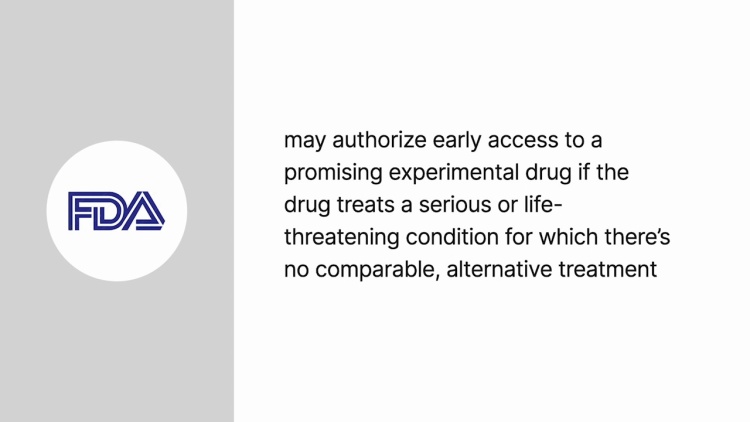Abigail Alliance for Better Access to Developmental Drugs v. Von Eschenbach
United States Court of Appeals for the District of Columbia Circuit
495 F.3d 695 (2007)
- Written by Angela Patrick, JD
Facts
Under Food and Drug Administration (FDA) (defendant) regulations, a drug needed to pass a three-phase approval process before patients were allowed to have it. Phase I was limited human testing to see if the drug was safe enough for wider testing. Phase II was controlled and closely monitored testing of a larger number of people to evaluate the drug’s effectiveness and short-term side effects. Phase III tested even more people to get additional information on effectiveness, safety, and the kinds of instructions doctors would need on the drug’s use. The approval process took about seven years. The FDA could authorize giving people outside the test groups early access to a promising experimental drug if (1) the drug treated a serious or life-threatening condition and (2) no viable alternative drug or therapy existed. However, drug manufacturers were not allowed to profit from drugs dispensed under this early-access program, which meant that not many manufacturers participated in it. The Abigail Alliance for Better Access to Developmental Drugs (Alliance) (plaintiff) was a group dedicated to increasing terminally ill patients’ access to experimental drugs. Alliance unsuccessfully lobbied the FDA for changes to the regulatory process. Alliance then filed a lawsuit arguing that the Due Process Clause in the United States Constitution created a substantive, fundamental right for terminally ill patients to access investigational drugs that had been declared safe for substantial human testing (i.e., drugs that had passed Phase I trials).
Rule of Law
Issue
Holding and Reasoning (Griffith, J.)
Dissent (Rogers, J.)
What to do next…
Here's why 907,000 law students have relied on our case briefs:
- Written by law professors and practitioners, not other law students. 47,100 briefs, keyed to 996 casebooks. Top-notch customer support.
- The right amount of information, includes the facts, issues, rule of law, holding and reasoning, and any concurrences and dissents.
- Access in your classes, works on your mobile and tablet. Massive library of related video lessons and high quality multiple-choice questions.
- Easy to use, uniform format for every case brief. Written in plain English, not in legalese. Our briefs summarize and simplify; they don’t just repeat the court’s language.






